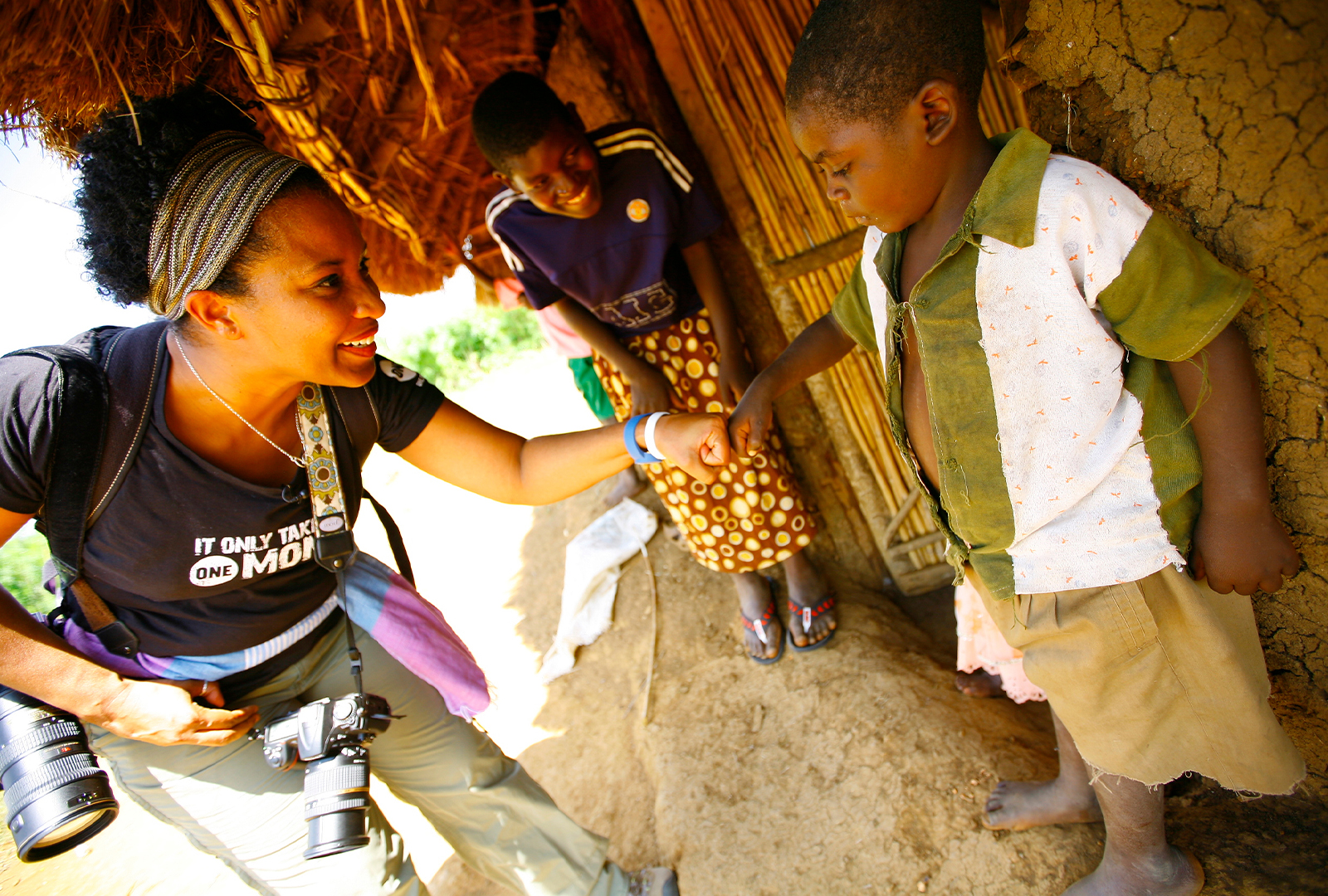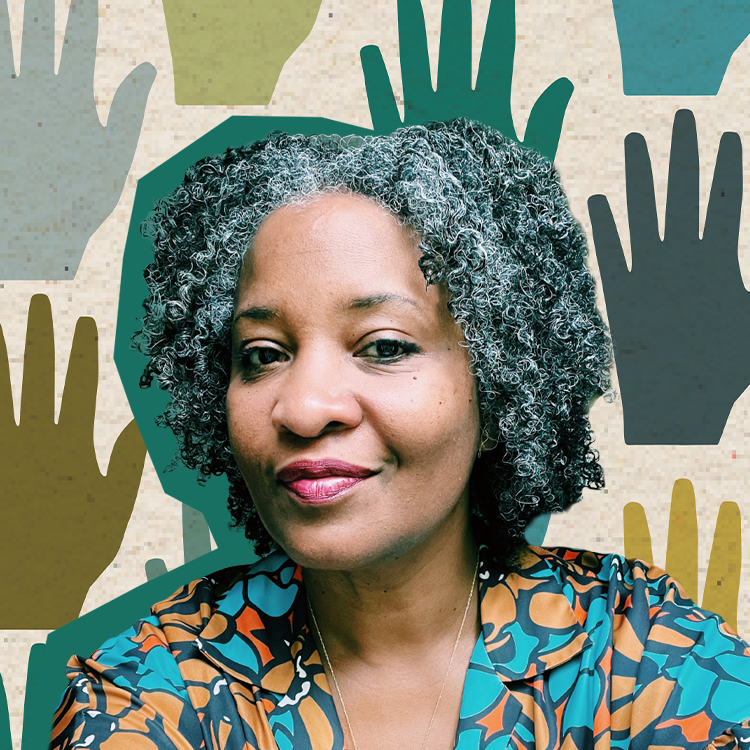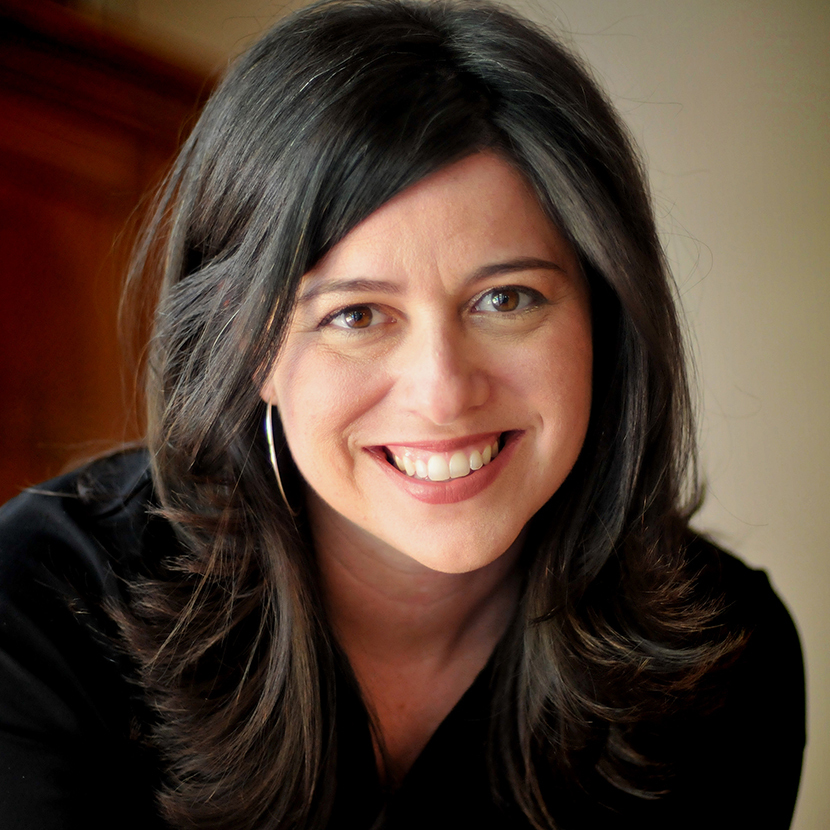Karen Walrond is a Certified Dare to Lead™ Facilitator, trained in Brené’s research on empathy, courage, and vulnerability.
Karen Walrond investigates why we tend to look at things the way we do. As a photographer, she captures the beauty of the human spirit, and as an author and speaker, she looks closer at how we approach our shared humanity.
A leadership coach, activist, and attorney, Walrond’s writing and coaching have helped thousands of people around the world find meaning and purpose in their lives. As the author of The Beauty of Different and The Lightmaker’s Manifesto, she shines light on how we see beauty, on how we advocate for change, and now, on how we approach aging in the Nautilus Book Awards-winning Radiant Rebellion: Reclaim Aging, Practice Joy, and Raise a Little Hell. It’s an investigation into the whys behind our biases, exploring the ways in which our assumptions might be made on false premises, how that affects us all, and how we can resist our own ageism.
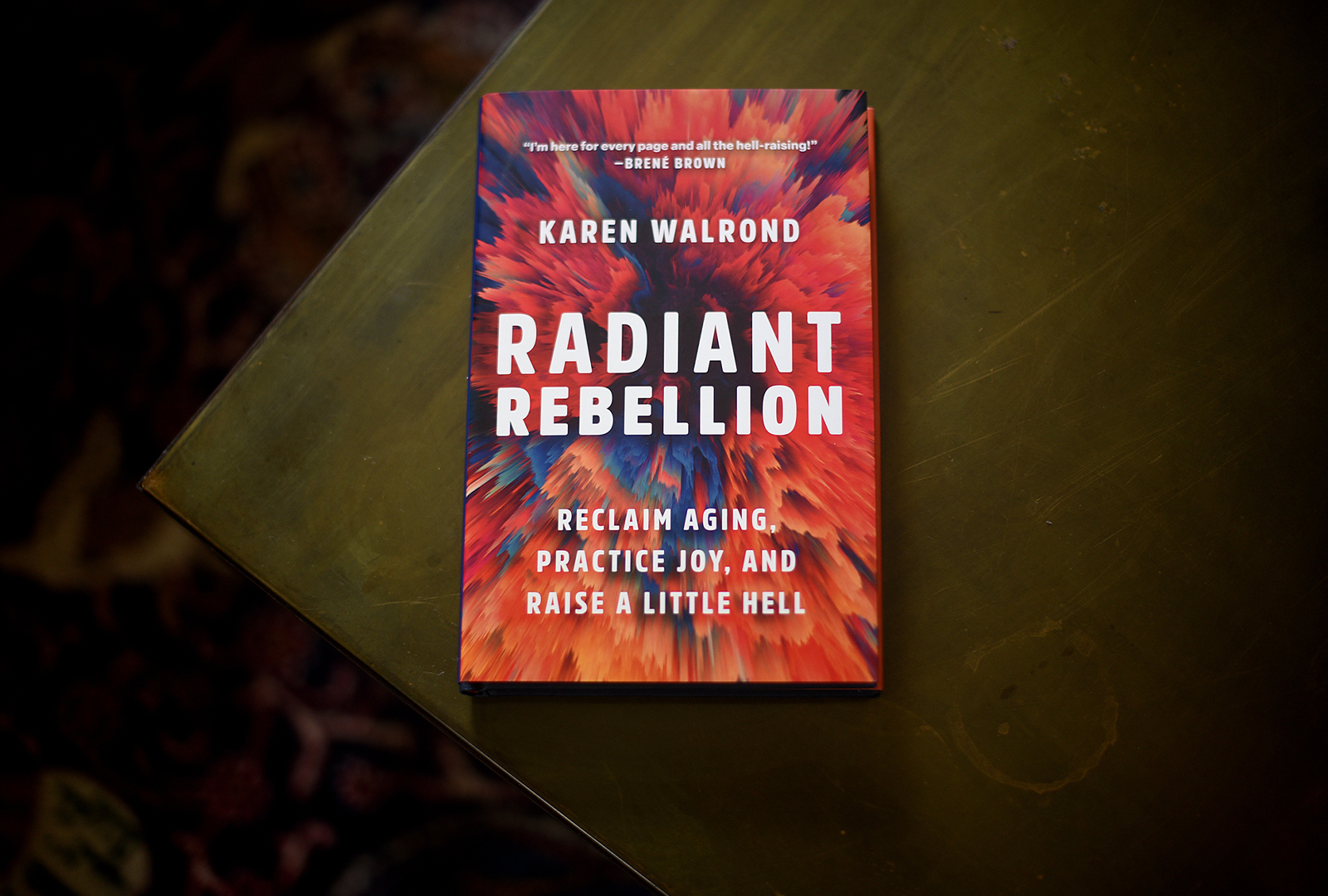
How did we get so off-course in our understanding of aging, and why are we so biased against our future selves?
Well, it can differ among countries and cultures, of course. In some countries, older people are treated as elders. But in the U.S., it turns out that our culture was designed for us to negatively view aging, but it wasn’t always this way. While writing Radiant Rebellion, I came across an academic paper written by psychiatrist and medical historian, Dr. Laura Hirshbein. Her research indicated that at the start of the 20th century, most folks in the U.S. viewed aging quite favorably.
But after two World Wars and the Great Depression, the U.S. government instituted a mandatory retirement age of 65, specifically to move older workers out of industry to ensure more jobs for younger men, so they could care for their growing families. Because of this, since they were no longer contributing to the economy, older folks were seen as “burdens” on society, and aging became a “problem to fix.” This spawned what is now a largely unregulated, trillion-dollar “anti-aging” industry — one which often views folks as young as 24 years old as their target market. Now, ageism is fully baked into all aspects of our society. It’s why I believe it’s time for an anti-ageism revolution.
My biggest hope is that people reading the book become curious about all the ways their lives could potentially expand with the possibility of coming years.
People talk about “aging gracefully.” What role does grace play in aging?
“Aging gracefully” is such an interesting term, because I think in most cases we view the phrase as meaning “age, but cheerfully resign yourself to it being a process of decline.” With this interpretation, I would suggest that we take fashion designer Norma Kamali’s advice and age not with grace, but “with power”: in other words, rather than assuming cultural ageist narrative as fact, instead have an attitude of grounded confidence that you can and should define your own standards for how to greet your coming years, focusing on expansion, evolution, and confidence in your own accumulated wisdom. I believe Kamali’s words to be true, so for me, the only way “grace” plays a part in how I age is simply by being what I extend myself when, because of my own internalized ageism, I fall short of what society says I should be. In those moments, I try to remind myself that I’m the only person who should be dictating how I expand and evolve in my life, not any other external forces. And then, I keep it rolling — in power.
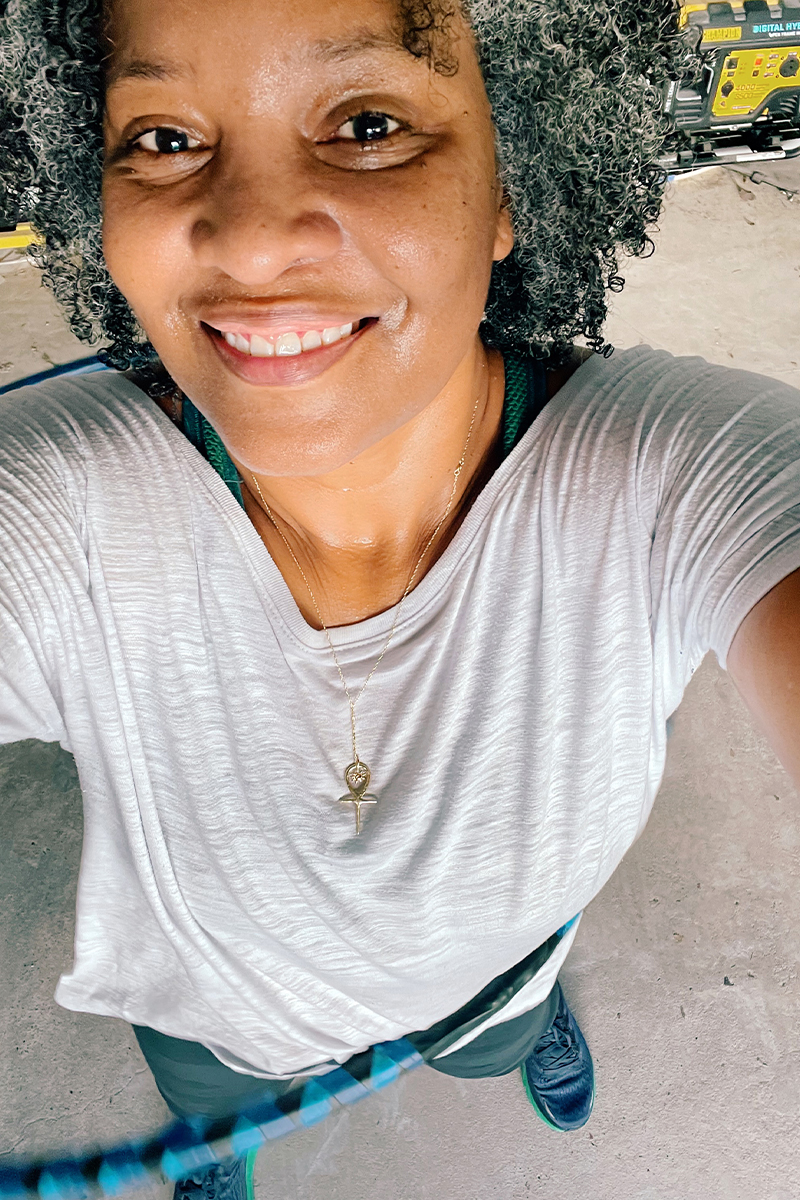
“One of the ways that I move to ‘nourish my wellness’ is by hula hooping! I hoop while I listen to interesting podcasts or great music — a total mood-booster,” Karen says.
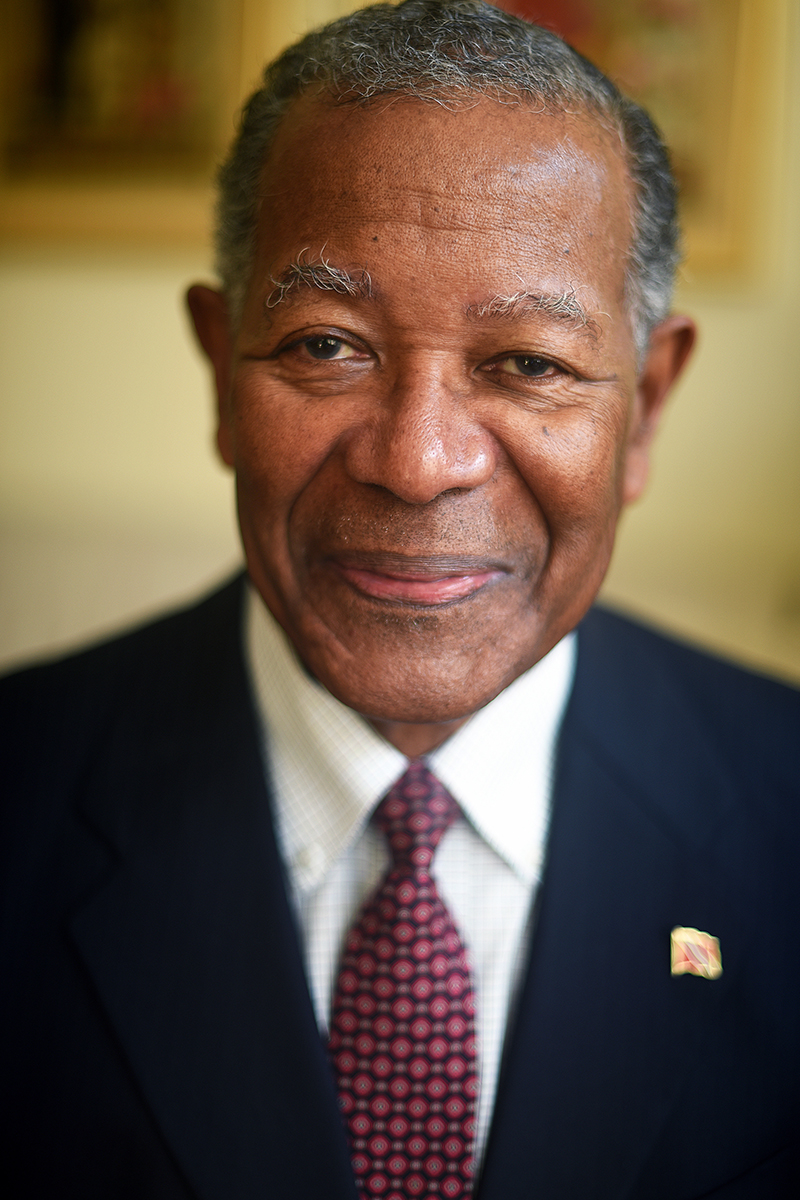
Karen says — “My dad, Kermitt Walrond, cultivates relationships and connections like nobody else I know.”
What have you learned about fostering connections as we age?
Dr. Vivek Murthy, the current surgeon general of the United States, has written extensively about the power of social connection and how fostering social connections is indeed one of the ways that we can age well. But more personally, I need look no further than my octogenarian dad, who is a master at fostering close friendships. When I asked him why this is so important to him, he said that he believes that friendship is more than just being acquainted with someone.
He believes that in friendship, your friend is a custodian of a part of you, and in turn, you are a custodian of a part of them — and this relationship is how you develop and become who you each are and who you’re each meant to be. I love this idea of friendship being a way to care for each other’s souls over time, and I’ll never forget it.
I try to remind myself that I’m the only person who should be dictating how I expand and evolve in my life, not any other external forces. And then, I keep it rolling — in power.
In one of your chapters, you talk about “nourishing wellness.” What does that mean?
This was one of the biggest aha moments I had when writing this book, and it came from my friend, Dr. Reeta Achari, a nutritional neurologist. A board-certified neurologist, she also brings cultural philosophies and methodologies from Ayurveda to her practice, and she told me that viewing food as “medicine” was counter to Ayurvedic principles. “Medicine,” she says, focuses on curing “illness”; instead, we should consider good, whole food as nourishing the *wellness* that we all have inside of us.
For me, this created such a shift in my thinking around food and movement: instead of thinking of depriving myself of food because it’s “bad” for me, I think of what good, whole foods I can try and experiment with to nourish my wellness. Instead of viewing exercise as a chore, I think of creative ways I can move that nourish my health, my joy, my vitality. It’s been a game changer for me.
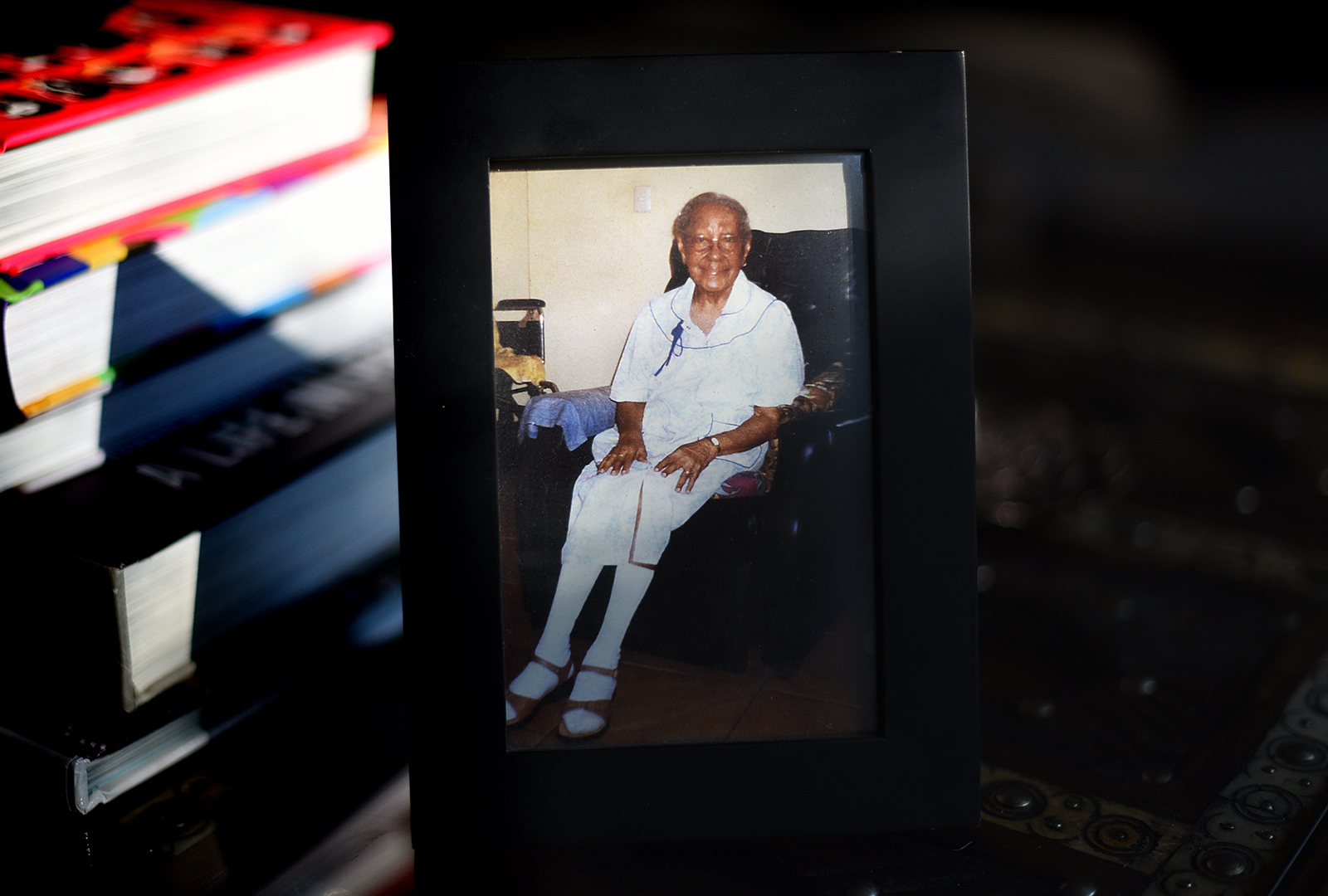
What do you hope for each of us as we approach aging in ourselves and others?
My biggest hope is that the readers of Radiant Rebellion will be inspired to approach their lives with curiosity: consider the ways in which their language potentially reinforces ageist thinking (for example, using “old” as shorthand for meaning “bad,” and “young” as shorthand for meaning “good,” like when we say things like “I don’t feel old.”).
I hope that when they make purchasing decisions, they think about whether there is any ageist marketing behind those products. But mostly, I hope they become curious about all the ways their lives could potentially expand with the possibility of coming years. As a society, we tend to spend a lot of time focusing on the negative. I hope folks become curious about all the potential positive that awaits them.
